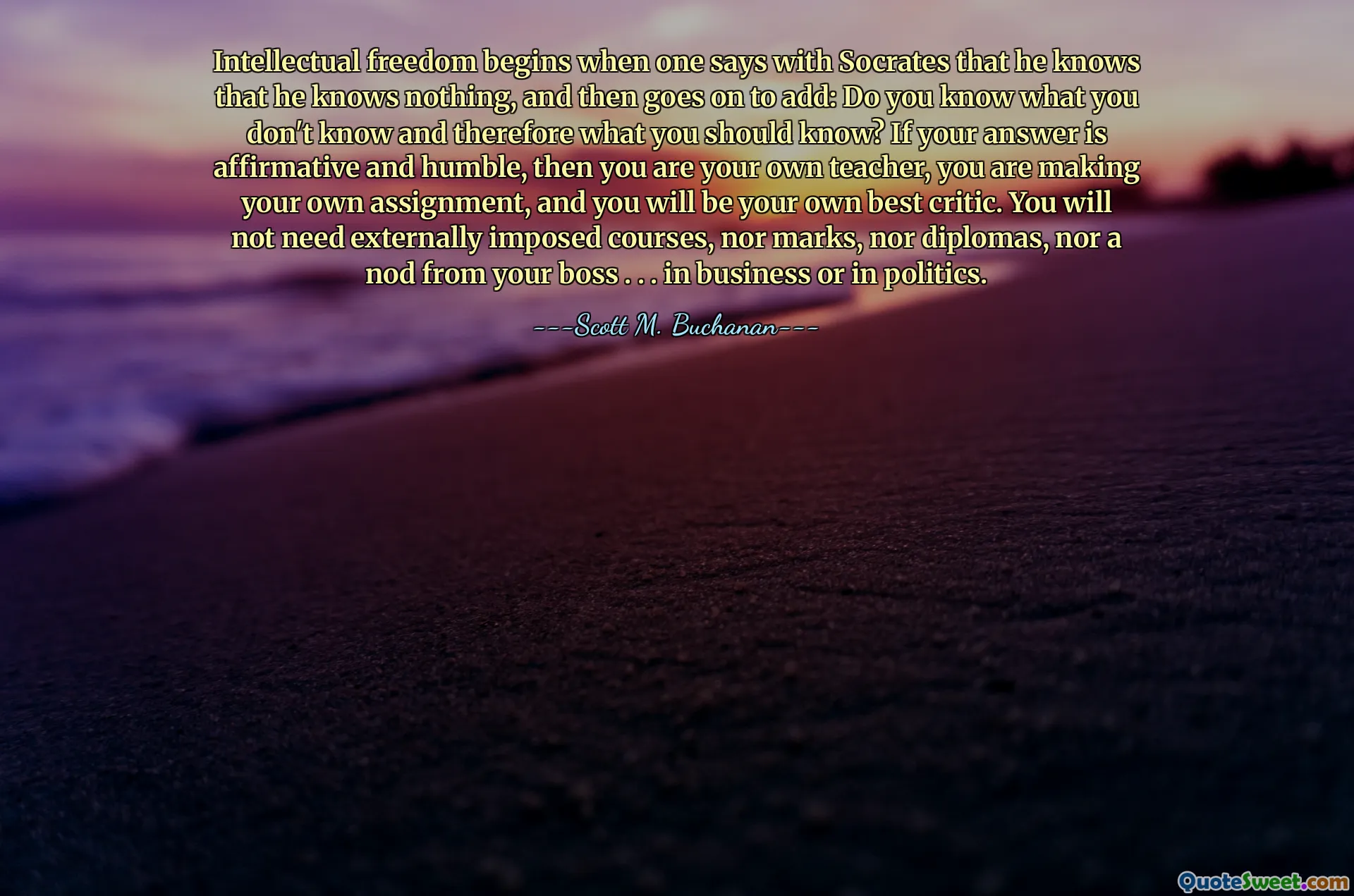
Intellectual freedom begins when one says with Socrates that he knows that he knows nothing, and then goes on to add: Do you know what you don't know and therefore what you should know? If your answer is affirmative and humble, then you are your own teacher, you are making your own assignment, and you will be your own best critic. You will not need externally imposed courses, nor marks, nor diplomas, nor a nod from your boss . . . in business or in politics.
This quote underscores the importance of intellectual humility as the foundation of true learning and personal growth. When Socrates claimed to know nothing, he demonstrated an openness to new ideas and a recognition that knowledge is infinite and continuously evolving. Embracing this attitude allows individuals to critically evaluate their understanding and identify gaps in their knowledge, fostering a self-driven approach to learning. Such humility shifts the perception of knowledge from a static possession to an ongoing pursuit, empowering individuals to become their own teachers and critics. This mindset diminishes dependence on external validation, such as formal qualifications, diplomas, or institutional approval, which often serve as gatekeepers to credibility and success. Instead, it emphasizes internal motivation, curiosity, and self-assessment, encouraging autonomous exploration and personal accountability. In a world driven by rapid change—be it in business, politics, or technology—being able to continuously learn and adapt is invaluable. The quote also challenges societal institutions that often value formal credentials over genuine understanding, promoting a culture where self-knowledge and humility are paramount. Cultivating such an attitude not only enhances individual competence but also fosters a more honest, open-minded, and resilient society that values wisdom over superficial measures of achievement. Ultimately, embracing the humility to admit what we do not know is the first step toward acquiring meaningful knowledge and becoming truly free thinkers.











